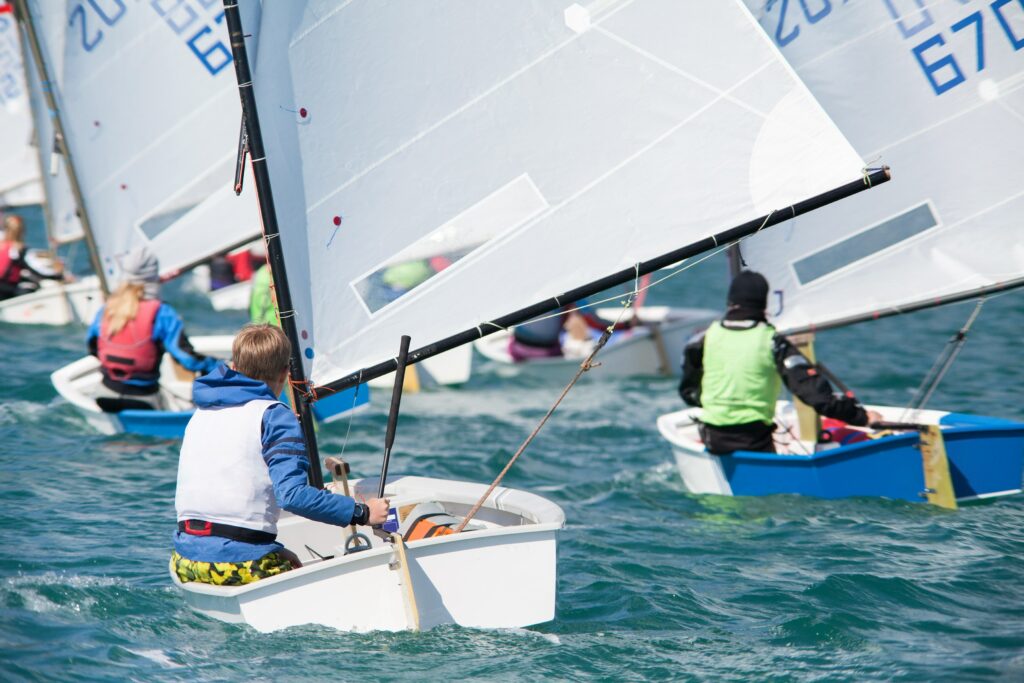Navigating COVID-19: A Community Sport Perspective

In the winter of 2020, the Rocky Point Sailing Association (RPSA) in Port Moody, BC was preparing for the upcoming season. RPSA is primarily run by volunteers and employs ten seasonal full-time staff who deliver long-term athlete development (LTAD) programming to more than 600 participants annually. When the COVID-19 pandemic was announced, summer programs were…
Solution-Focused Mindset
Is focusing on the negatives of the COVID-19 pandemic increasing your stress and decreasing your motivation? Adopting a solution-focused mindset means challenging yourself to find new and better ways to cope with the current realities. Research shows this shift in mindset can increase self-confidence and promote a positive mood.
Risk of Stress Fractures
Stress fractures are observed more frequently in female runners, compared to males. Analysis of women’s perception of risk and behaviors discovered those with a history of fractures increased their training load more quickly, and, despite knowing the benefits, they did not prioritize a balanced diet and complementary cross-training.
Credible Exercise Advice
Are the bloggers you follow certified exercise professionals? A study from the University of Alberta examined 194 popular fitness and exercise blogs, with a focus on blog authors. Results found only 16.4% of bloggers report have fitness and exercise certifications, although 57% report being a fitness or exercise professional.
Sleep and Positive Attitudes
Not feeling like you usual positive self? Perhaps you didn’t sleep well last night. Research shows sleep loss reduces our positive feelings in the face of both stressors and positive events.
Returning to Sport Post-Isolation
Following a reduction of public health restrictions, some athletes may be excited about being with friends, returning to training, and looking forward to competition; others will experience fear and anxiety relating to the risk of infection, the effects of detraining, or being behind competitors and teammates. Coaches can learn more to prepare for this range…
Remembrance Day 2020
November 11th is Remembrance Day. Today, and every day, we remember Canada’s veterans, and their service and sacrifice for our country. Sport and physical activity programs can have a positive impact on the wellbeing of veterans experiencing physical disability or post-traumatic stress disorder (PTSD). Beyond providing enjoyable experiences, research finds participation can support personal growth…
Mind over COVID? Mental health tips for coaches, athletes, and sport administrators

During epidemics, the number of people whose mental health is affected tends to be greater than the number of people affected by the infection. Past tragedies have shown that the mental health implications can last longer and have greater prevalence than the epidemic itself and that the psychosocial and economic impacts can be incalculable if…
Trauma-Sensitive Design
Sport and physical activity programming that incorporates trauma-sensitive design harnesses social and environmental protective factors that can contribute to children’s resilience. Specific strategies include creating a safe environment, nurturing positive adult relationships, building body awareness and physical competence, and delivering active, engaging experiences.
Long Term Effects of Concussion
Concussions may be related to increased risk of neurodegenerative diseases, such as Alzheimer’s Disease. Data from the Baltimore Longitudinal Study of Aging reveals that concussions can produce long-lasting structural and functional changes the brain in older individuals.